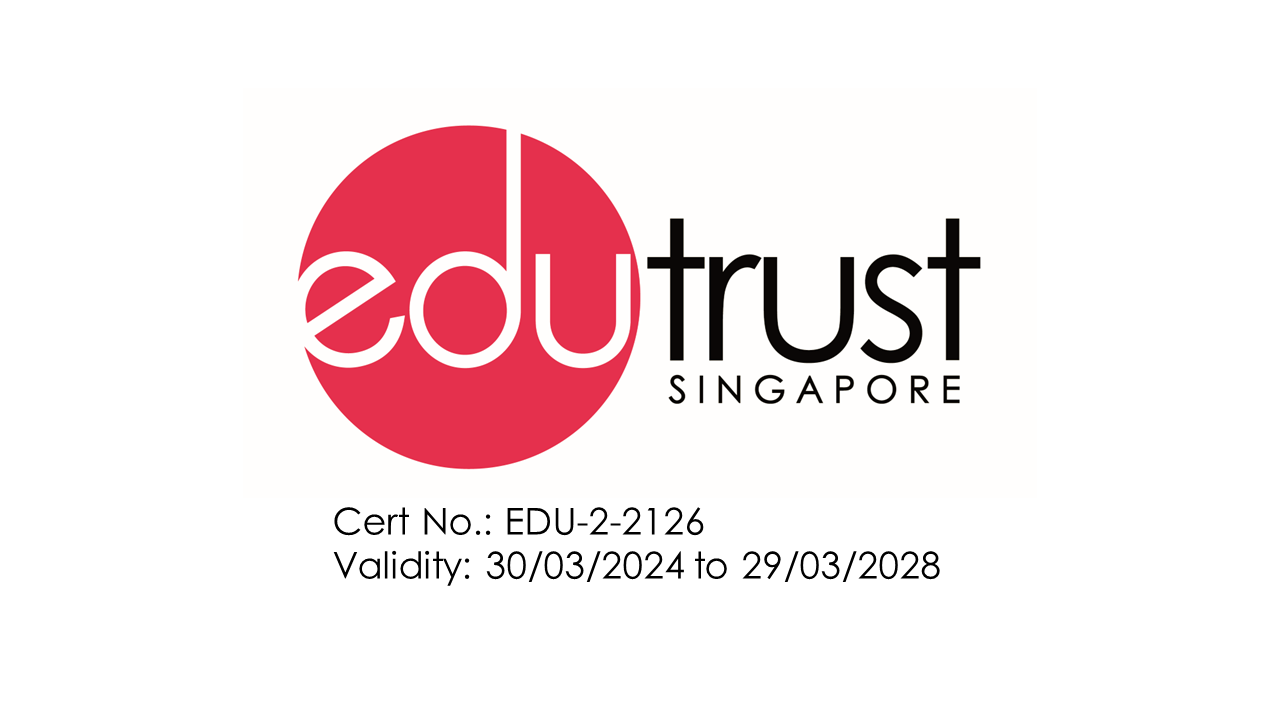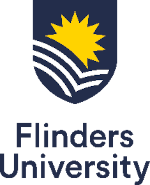Join Our Existing Lectures: Counselling Approaches
Lectures (Non-SSG Registered)
As an established counselling academy, ECTA is committed to offering high-quality short-courses to help both new and experienced helping professionals enhance their counselling support competencies. If you are a psychotherapist, counsellor, para-counsellor, social worker, psychologist or have a professional responsibility supporting the psycho-emotional wellbeing of another person, you may wish to expand your “toolkit” of modalities and approaches. This is your opportunity to do so.
All ECTA short-courses listed below are facilitated by experienced clinical practitioners qualified to teach up to Masters Degree level. Register now to secure your place for any of these short-courses.
Topics Covered Under Lectures
Please click specific topics for course schedule, fees and other details:
– Understand the fundamental principles of Psychodynamic Psychotherapy
– Know how Psychodynamic Psychotherapy is used in Counselling Case Management
– Use the framework of Psychodynamic Psychotherapy in Counselling Practice
Dr Samuel Cheng Eng Teck, Mr Lew Zhen Wei, Dr Andre Tay Teck Sng, Dr Glen Cedric Roche TzeLee, Dr Sanjiv Nair Sasidharan
(Participants have to
attend all lectures to be
awarded the Certificate)
Date: 17 May 2025 (Saturday)
Time: 9 am to 6 pm
Date: 24 May 2025 (Saturday)
Time: 9 am to 6 pm
Date: 31 May 2025 (Saturday)
Time: 9 am to 4 pm
– understand the concept and process of Narrative Therapy
– know the strengths and limitations of Narrative Therapy in Counselling Case Management
– apply Narrative Therapy to Counselling Case Management
(Participants have to
attend all lectures to be
awarded the Certificate)
Date: 4 August 2025 (Monday)
Time: 6.45 pm to 9.45 pm
Date: 7 August 2025 (Thursday)
Time: 6.45 pm to 9.45 pm
Date: 13 August 2025 (Wednesday)
Time: 6.45 pm to 9.45 pm
– understand the concept and process of Reality Therapy
– know the strengths and limitations of Reality Therapy in Counselling Case Management
– apply Reality Therapy to Counselling Case Management
(Participants have to
attend all lectures to be
awarded the Certificate)
Date: 12 June 2025 (Thursday)
Time: 9 am to 5 pm
Date: 13 June 2025 (Friday)
Time: 9 am to 5 pm
Date: 14 June 2025 (Saturday)
Time: 9 am to 5 pm
– appreciate the basic framework of Transactional Analysis (TA)
– apply the key TA concepts effectively in case management
– conceptualise and support common issues using TA strategies
– understand strengths and limitations of TA
(Participants have to
attend all lectures to be
awarded the Certificate)
Date: 18 October 2025 (Saturday)
Time: 9 am to 5 pm
Date: 24 October 2025 (Friday)
Time: 9 am to 5 p m
(Participants have to
attend all lectures to be
awarded the Certificate)
Date: 21 April 2025 (Monday)
Time: 9 am to 5 pm
Date: 23 April 2025 (Wednesday)
Time: 9 am to 5 pm
– understand the core conditions of Person – Centered Therapy (PCT) – a humanistic approach to counselling
– use the Person-Centered approach to establish the therapeutic relationship with clients
– use Person-Centered therapeutic relationship to strengthen the “being” of a client
(Participants have to
attend all lectures to be
awarded the Certificate)
Date: 2 April 2025 (Wednesday)
Time: 6.45 pm to 9.45 pm
Date: 11 April 2025 (Friday)
Time: 6.4 5pm to 9.45 pm
Date: 15 April 2025 (Tuesday)
Time: 6.4 5pm to 9.45 pm
– Demonstrate how Redecision Psychotherapy is used in Case Management
– Use the framework of Redecision Psychotherapy in Counselling Practice.
(Participants have to
attend all lectures to be
awarded the Certificate)
Date: 1 November 2025 (Saturday)
Time: 9 am to 5 pm
Date: 14 November 2025 (Friday)
Time: 9 am to 5 pm
Date: 26 November 2025 (Wednesday)
Time: 9 am to 5 pm
Date: 28 November 2025 (Friday)
Time: 9 am to 5 pm
– conduct the first interview with clients
– use the “6 Cs Model” in the change process
– refer clients for further interventions
(Participants have to
attend all lectures to be
awarded the Certificate)
Date: 4 October 2025 (Saturday)
Time: 9 am to 5 pm
Date: 7 October 2025 (Tuesday)
Time: 9 am to 5 pm
– Recognise the common presenting issues in marriages and family settings
– Conceptualise causes of marital and family problems
– Have an overview of at least two common psychotherapeutic approaches to marital or family therapy
– Support marital family issues using the Bowen Systemic Family Therapy
– Understand strengths and limitations of Marital and Family Therapy
(Participants have to
attend all lectures to be
awarded the Certificate)
Date: 25 June 2025 (Wednesday)
Time: 6.45 pm to 9.45 pm
Date: 28 June 2025 (Saturday),
Time: 9 am to 6 pm
– have an overview of the spirit and assumptions that inform the Motivational Interviewing (MI) counselling approach.
– have some foundational understanding of the strategies and techniques being used in MI to reduce resistance during counselling sessions.
– have some foundational understanding of the strategies and techniques being used in MI to increase clients’ intrinsic motivation to change.
(Participants have to
attend all lectures to be
awarded the Certificate)
Date: 16 May 2025 (Friday)
Time: 6.45 pm to 9.45 pm
Date: 23 May 2025 (Friday)
Time: 6.45 pm to 9.45 pm
Date: 30 May 2025 (Friday)
Time: 6.45 pm to 9.45 pm
– Know the definition of disability
– Understand the issues of significance related to clients with disabilities
– Understand clients with disabilities and their family dynamics
(Participants have to
attend all lectures to be
awarded the Certificate)
Date: 17 July 2025 (Thursday)
Time: 6.45 pm to 9.45pm
– Know what is addiction in case management.
– Know the DSM Criteria and definition of addictions.
– Know about the addiction models (Bio Psychosocial model).
– Counselling modalities or interventions used to help clients with addictions issues.
– Understand the different types of addictions (Substance and Behavioural).
– Identify clients who need referral to the Community resources for further interventions.
– Know the law associated with addictions (Illicit drug use and controlled drugs).
(Participants have to
attend all lectures to be
awarded the Certificate)
Date:25 October 2025 (Saturday)
Time: 9 am to 6 pm
– Use micro-skills in the counselling process
– Be able to integrate micro-skills in the process of building the therapeutic alliance.
– Be able to integrate micro-skills in the problem-management process
(Participants have to
attend all lectures to be
awarded the Certificate)
Date: TBA
– Know the definition of Depression Disorders using the Diagnostic and Statistical Manual of Mental Disorders 5th Edition produced by the American Psychological Association, or International Classification of Diseases and Related Health Problems 10th Edition produced by the World Health Organisation
– Recognise the different types of Depression Disorders.
– Manage Depression Disorders from a counselling perspective
– Become familiar with common medications used to treat Depression Disorders
– Know when to refer counselling clients for medical assessment and treatment
(Participants have to
attend all lectures to be
awarded the Certificate)
Date: 16 Apr 2025 (Wednesday)
Time: 6.45pm to 9.45pm
Date: 23 Apr 2025 (Wednesday)
Time: 6.45pm to 9.45pm
– Know the definition of various Anxiety Disorders using the Diagnostic and Statistical Manual of Mental Disorders 5th Edition produced by the American Psychological Association, or International Classification of Diseases and Related Health Problems 10th Edition produced by the World Health Organisation
– Understand the counselling issues related to Anxiety Disorders
– Recognise the different types of Anxiety Disorders
– Manage Anxiety Disorders from a counselling perspective
– Become familiar with common medications used to treat anxiety disorders
– Know when to refer counselling clients for medical assessment and treatment
(Participants have to
attend all lectures to be
awarded the Certificate)
Date: 8 Apr 2025 (Tuesday)
Time: 6.45pm to 9.45pm
Date: 10 Apr 2025 (Thursday)
Time: 6.45pm to 9.45pm
– Define what is Cultural Diversity, Inclusivity & multiculturalism sensitivity in the counselling profession
– Identify primary barriers to effective counselling in diverse cultural situations
– Discern differences in “Identity Formation” of majority and minority groups in a diverse and inclusive society (Multicultural society)
– Examine cultural variations in verbal and non-verbal communication
(Participants have to
attend all lectures to be
awarded the Certificate)
Date: 2 June 2025 (Monday)
Time: 6.45 pm to 9.45 pm
Date: 4 June 2025 (Wednesday)
Time: 6.45 pm to 9.45 pm
– Relevance of learning about Diversity and having Multi-Cultural Competence
– Understanding of Diversity and Equity
– Recognising and Reducing Harm
(Participants have to
attend all lectures to be
awarded the Certificate)
Date: 17 June 2025 (Tuesday)
Time: 6.45 pm to 9.45 pm
– Be able to write counselling case reports and case notes
– Be aware of the reasons for record-keeping
– Be able to understand the ethical guidelines of documentation for safeguarding and maintaining accurate record-keeping
(Participants have to
attend all lectures to be
awarded the Certificate)
Date: 27 June 2025 (Friday)
Time: 6.45 pm to 9.45 pm
Theoretical Foundations
- Be familiar with the family life cycle and the transgenerational theory.
- Understand the idea of systemic couple and family counselling, including cybernetics, systems, and rules.
- Demonstrate understanding of the core ideas of family systems theory.
Family Therapy Approaches
- Be able to apply strategic family therapy approaches appropriately, such as trans-generational, structural, and family therapy.
Affair and Relationship Dynamics
- Understand what constitutes an affair.
- Demonstrate awareness of the impact of an affair on the victim, children, and the perpetrator.
- Understand the stages of an affair.
- Be familiar with interventions, such as how to end an affair and rebuild the relationship
Practical Skills
- . Skills connected to the Transgenertional and Structural Models, such as:
- The construction of genogram
- Use of enactment
- Unbalancing skills
(Participants have to
attend all lectures to be
awarded the Certificate)
Date: 28 Jun 2025 (Saturday)
Time: 9am to 5pm
Date: 4 Jul 2025 (Friday)
Time: 9am to 5pm
Date: 5 Jul 2025 (Saturday)
Time: 9am to 5pm
Date: 8 Jul 2025 (Tuesday)
Time: 5.45pm to 9.45pm
Theoretical Foundations
- Appreciate the impact of cultural diversity on couple and family therapy.
- Have an overview of at least two common psychotherapeutic approaches to marital or family therapy.
- Understand strengths and limitations of Marital and Family Therapy.
Family Therapy Approaches
- Be able to apply various types of family therapy approaches appropriately, such as experiential and Milan
- Be aware of the challenges posed by various family therapy approaches and manage them effectively.
Practical Skills
- Be proficient in constructing genograms.
- Recognize the common presenting issues in marriages and family settings.
- Conceptualize causes of marital and family problems.
- Support marital family issues using the Bowen Systemic Family Therapy
(Participants have to
attend all lectures to be
awarded the Certificate)
Date: 12 Jul 2025 (Saturday)
Time: 9am to 5pm
Date: 19 Jul 2025 (Saturday)
Time: 9am to 5pm
Date: 22 Jul 2025 (Tuesday)
Time: 9am to 5pm
Date: 24 Jul 2025 (Thursday)
Time: 5.45pm to 9.45pm
Impact of Trauma and Abuse to Families
- Demonstrate awareness of the impact of childhood sexual abuse, trauma, and mental illness on family therapy intervention.
- Demonstrate understanding of the relationship between family violence, abuse, and control.
- Be able to identify the psycho-social impact of family violence.
- Be aware of the principles of safe practice when working on cases relating to family violence.
(Participants have to
attend all lectures to be
awarded the Certificate)
Date: 31 Jul 2025 (Thursday)
Time: 1pm to 7pm
Date: 1 Aug 2025 (Friday)
Time: 9am to 6pm
Date: 2 Aug 2025 (Saturday)
Time: 9am to 6pm
Date: 5 Aug 2025 (Tuesday)
Time: 5.45pm to 9.45pm





